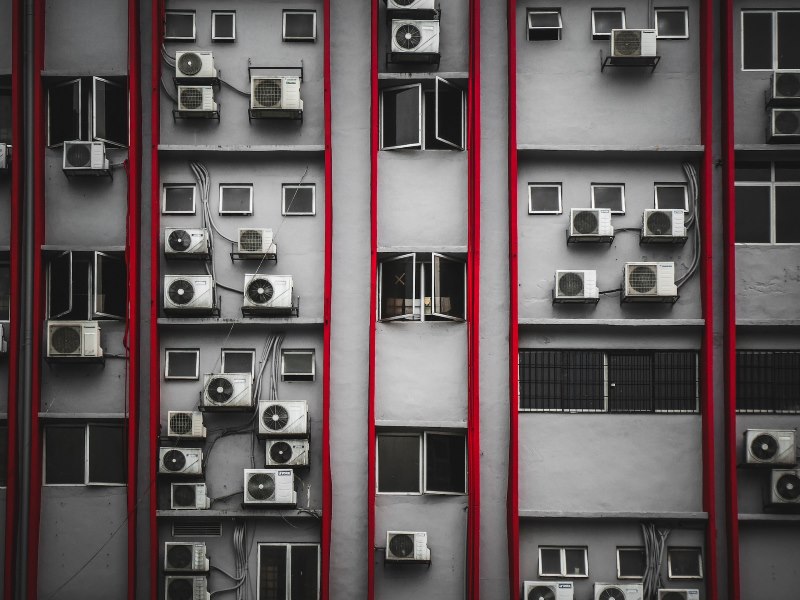Why Indoor Air Quality Carries Weight In Facility Management

Indoor air quality management has become a key focus of facility managers, as it is linked to business performance in many ways. Here’s more about how indoor air quality holds critical in facility management.
Prof. Chris Whitty, Chief Medical Officer for England, recently highlighted the urgent need for monitoring indoor air quality in establishments such as hospitals, schools, and supermarkets. Remarking that indoor air quality monitoring needs to become a standard, he called for the need to invest in monitoring levels of pollutants in offices and public buildings.
The veteran researcher’s words offer us a cue that indoor air quality (IQA), undoubtedly, has a significant role to play in regulating indoor environment quality (IEQ). When it follows the accepted standards, IQA fetches innumerable benefits that revolve around critical areas such as employee performance, transmission of airborne viruses, and energy efficiency.
Periodically monitoring levels of air pollutants such as PM 2.5, PM10, CO, CO2, Mercury, NO2, and Formaldehyde in indoor air is thus a mandate for facility managers. Using strong monitoring systems and being exceptionally compliant with the accepted standards is the best way to assure quality air inside the spaces of a facility. Let’s move on to understand more about the importance of indoor air quality below.
Understanding the undeniable importance of indoor air quality in facility management
Air is one element that each one of us shares in common, even while working inside facilities. Indoor air quality (IQA) decides the efficiency of a facility and the effectiveness of the overall system as it:
Affects mental and Physical well being
The quality of the air we breathe can have a significant impact on our health. Changes in air composition impact the physical health as well as the mental well-being of occupants.
Poor indoor air quality can cause respiratory problems, allergies, headaches, fatigue, and other health issues. For instance, long-term exposure to high levels of carbon dioxide can cause fatigue, headaches, and impaired cognitive function, while exposure to pollutants such as nitrogen dioxide and formaldehyde can lead to respiratory problems and allergic reactions. All these are extremely important considerations when taking into account building indoor air quality.
As a result, facility managers are responsible for ensuring that the indoor air quality in their buildings is of high quality to safeguard the health and well-being of building occupants. They must regularly check the air quality to ensure that it is safe to breathe and take measures to improve it if necessary.
Determines Outcomes
A study by the Harvard T.H. Chan School of Public Health found that improved IAQ (indoor air quality) in a building led to a 35% reduction in sick building syndrome symptoms, a 9% increase in productivity, and a 6% reduction in absenteeism. This evidence is enough to judge indoor air quality’s role in the productivity and efficiency of occupants working in a facility.
Indoor air quality affects the productivity of employees in a building. When people are exposed to poor air quality, they can experience discomfort, which can lead to distraction, decreased concentration, and reduced work performance. This can lead to a decrease in productivity and a negative impact on the bottom line.
When facility managers assure that the indoor air quality consistently remains above the threshold value, occupants of facilities feel comfortable and positive. They can well concentrate on their work and deliver the expected output. So, in contrast, good indoor air quality can improve employee satisfaction and productivity.
Drives energy efficiency
Maintaining good indoor air quality can help facility managers to improve energy efficiency. When the air quality in a building is poor, the HVAC software system has to work harder to maintain the desired temperature and humidity levels, leading to higher energy consumption and costs.
On the other hand, when indoor air quality is good, the HVAC system can work more efficiently, reducing energy consumption and costs. With good air quality, you achieve this by ensuring that the HVAC system is maintained and cleaned regularly to prevent the buildup of dust, mold, and other pollutants that can affect the system’s efficiency.
Here, is a closer look at how IQA is important to keep the entire facility ecosystem energy efficient:
- Good IQA optimizes the process of mechanical ventilation, thereby reducing energy consumption for converting stale air into fresh air.
- If the air is polluted or contaminated, the HVAC system may need to work harder to maintain comfortable temperatures and IAQ levels and vice versa.
- Good IAQ can help to maintain the building’s insulation performance, reducing the need for excessive energy consumption in all seasons.
- Less pollutants and contaminants in the air reduces stress on the cleaning and filtration system, reducing energy consumption.
Assure adherence to norms
Facility managers must comply with regulations and standards related to indoor air quality. Failing to comply with these regulations can result in legal issues and financial penalties. For instance, the Occupational Safety and Health Administration (OSHA) has regulations that require employers to maintain a safe and healthy workplace, including air quality standards.
Also Read: 5 Ways Cloud Solutions are Benefitting Facility Managers
In addition to OSHA regulations, the Environmental Protection Agency (EPA) has established guidelines for indoor air quality in buildings. These guidelines outline the recommended levels of pollutants and the best practices for maintaining good indoor air quality. Similarly, there are World Health Organization (WHO) guidelines for indoor air quality for some selected pollutants.
Is a matter of reputation
The indoor air quality of a building can affect its reputation. Poor air quality can lead to negative reviews and complaints from occupants, visitors, and customers, affecting the building’s image and reputation. On the other hand, maintaining good indoor air quality can help to build a positive reputation and attract new occupants, customers, and visitors.
Indoor air quality can lead to positive as well as negative media attention, loss of customers, and legal penalties. Therefore, businesses must take air quality seriously and implement effective strategies to maintain high standards.
Thus, facilities must adopt a robust indoor air quality framework so as to demonstrate their commitment to maintaining high air quality standards, which can enhance their reputation and attract new customers. This can be especially important in industries where public perception and trust are critical, such as real estate, healthcare, and hospitality.
Conclusion
Indoor air quality is incredibly important to your facility business, and we have just got a glimpse of that. In a way, it is a fundamental parameter for remaining competitive and it is imperative for businesses owning, managing, or even renting facilities to make strides toward consistently improving indoor air quality. Employing a bespoke facility maintenance software is one way to manage IQA, as with regular maintenance, your HVAC systems will be better equipped to maintain IQA.
While complying with accepted IQA norms is unavoidably essential, it can be an easy feat to achieve by having the right facility management systems in place. A quality facility management system can supplement your indoor air quality management plan, and fast improve IQA.
If you are keen on not letting your facility’s performance suffer due to poor indoor air quality or are looking to ensure consistent IQA levels, consider having a discussion with our experts. FieldCircle’s expert facility management consultants with their deep expertise will guide you in the adoption of the right system.


